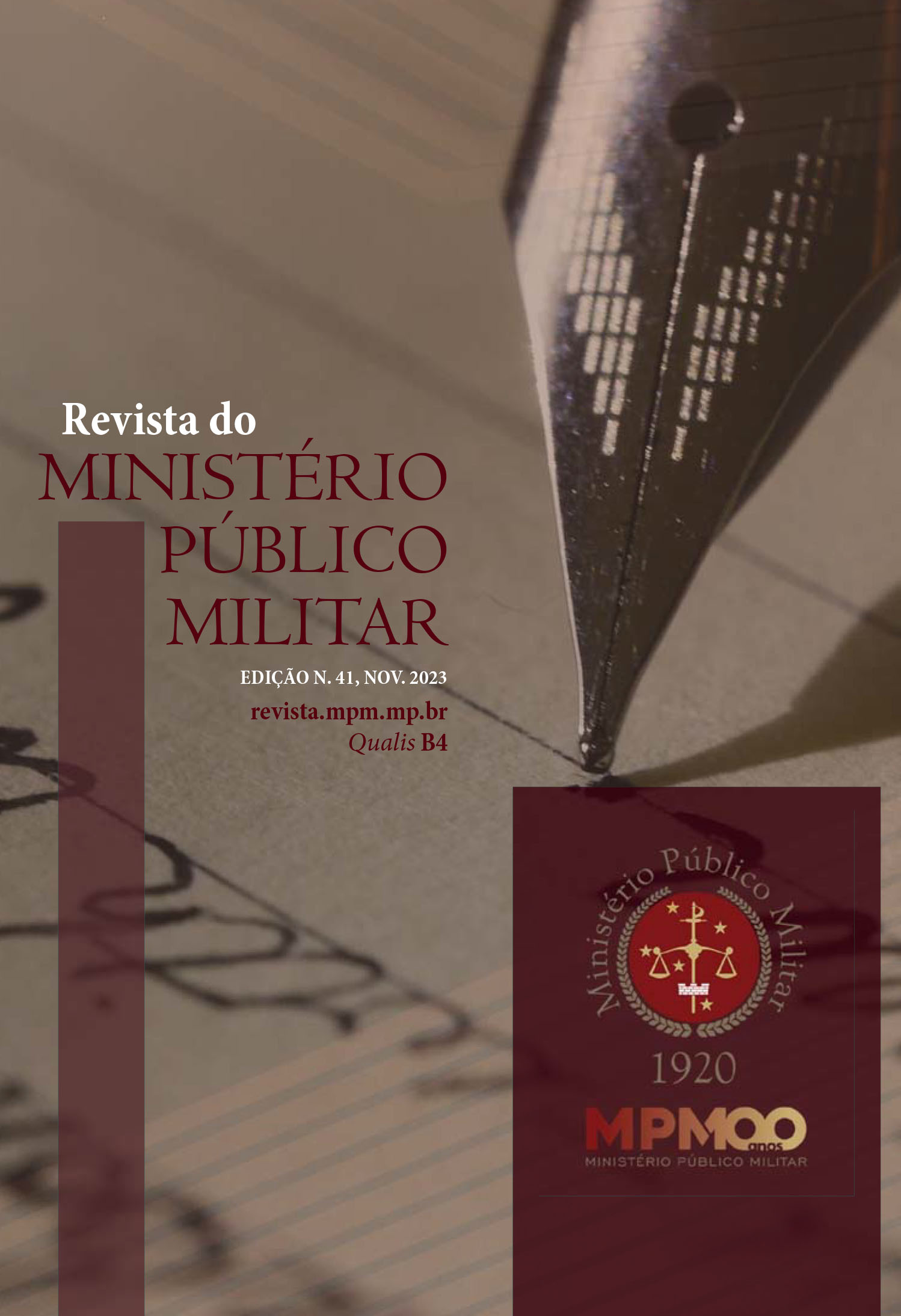A liberdade de expressão nas redes sociais e no Estado Democrático de Direito: O impacto do seu uso desregulado sobre as práticas democráticas
Palavras-chave:
liberdade de expressão, redes sociais, Estado Democrático de DireitoResumo
O objetivo deste artigo foi analisar como o uso abusivo das redes sociais tem impactado as práticas democráticas, o debate político e o exercício de direitos, garantias e liberdades individuais. Para tal, analisa-se o exercício da liberdade de expressão nas mídias digitais sob a perspectiva do princípio da igualdade no Estado Democrático de Direito; aborda-se a “tecnologia da persuasão”, desenvolvida pela indústria da tecnologia da informação, a aplicação de algoritmos para impulsionar o crescimento das redes sociais, e como isso tem influenciado negativamente as formas de pensar e agir das pessoas; aponta-se o proselitismo e os ataques ao Estado Democrático de Direito difundidos nas redes sociais por grupos políticos, religiosos e ideológicos; assinala-se a urgente necessidade da criação de mecanismos de controle e modulação da desinformação e dos conteúdos impróprios que circulam nas redes sociais, em especial as fake news. Em conclusão, afirma-se a necessidade do aprimoramento de mecanismos de controles do uso da internet mediante a elaboração de lei sobre liberdade, responsabilidade e transparência no uso de aplicativos e de redes sociais, preocupação que transcende fronteiras e reclama uma solução integrada e universal.
Referências
ABBOUD, Georges. Democracia para quem não acredita. Belo Horizonte: Letramento, 2021.
_________________. Direito Constitucional pós-moderno. São Paulo: Thomson-Reuters Brasil, 2021.
AMBASSADE DE FRANCE AU BRÉSIL. A Declaração dos Direitos do Homem e do Cidadão. 2017. Disponível em: https://br.ambafrance.org/A-Declaracao-dos-Direitos-do-Homem-e-do-Cidadao Acesso em: 13 set. 2023.
BARROS, Suzana de Toledo. O princípio da proporcionalidade e o controle de constitucionalidade das leis restritivas de direitos fundamentais. Brasília: Brasília Jurídica, 1996.
BRASIL. Câmara dos Deputados. PL 2630/2020. Disponível em: https://www.camara.leg.br/propostas-legislativas/2256735 Acesso em: 16 set. 2023.
_______. Presidência da República. Emenda constitucional nº 115, de 10/02/2022. Disponível em:https://www.planalto.gov.br/ccivil_03/constituicao/Emendas/Emc/emc115.htm. Acesso em: 16 set. 2023.
_______. Presidência da República. Lei nº 5.250, de 9 de fevereiro de 1967. Disponível em: https://www.planalto.gov.br/ccivil_03/leis/l5250.htm. Acesso em: 14 set. 2023.
______. Presidência da República. Lei nº 12.965, de 23 de abril de 2014. Disponível em: https://www.planalto.gov.br/ccivil_03/_ato2011-2014/2014/lei/l12965.htm. Acesso em: 16 set. 2023.
_______. Presidência da República. Lei nº 13.709, de 14 de agosto de 2018. Disponível em: https://www.planalto.gov.br/ccivil_03/_ato2015-2018/2018/lei/l13709.htm. Acesso em: 16 set. 2023.
_______. Supremo Tribunal Federal. ADI 4815/DF. Rel. Min. Cármen Lúcia, 10/06/2015.Disponívelem:http://redir.stf.jus.br/paginadorpub/paginador.jsp?docTP=TP&docID=10162709. Acesso em: 16 set. 2023.
_______. Supremo Tribunal Federal. ADPF 130/DF. Relator: Min. Ayres Britto, 01-12-2009. Disponível em: https://portal.stf.jus.br/processos/detalhe.asp?incidente=12837 Acesso em: 14 set. 2023.
_______. Supremo Tribunal Federal. ADPF 187 Distrito Federal. Relator: Min. Celso de Mello, 15/06/2011. Disponível em: http://redir.stf.jus.br/paginadorpub/paginador.jsp?docTP=TP&docID=5956195. Acesso em: 16/09/2023.
________. Supremo Tribunal Federal. Inquérito 4874/DF. Relator: Min. Alexandre de Moraes, 02/07/2021. Disponível em: https://portal.stf.jus.br/processos/detalhe.asp?incidente=6214799 Acesso em: 14 set. 2023.
________. Supremo Tribunal Federal. Inquérito 4.921 Distrito Federal. Relator: Min. Alexandre de Moraes, 13 de janeiro de 2022. Disponível em: https://www.stf.jus.br/arquivo/cms/noticiaNoticiaStf/anexo/DecisaoInclusodeBolsonaro.pdf Acesso em: 16 set. 2023.
CHUN-CHEN LIU, Albert; MING KIN LAW, Oscar. Artificial Intelligence Hardware Design: Challenges and Solutions. Editora John Willley and Sons Inc., Hoboken, New Jersey: 2021.
COMISSÃO INTERAMERICANA DE DIREITOS HUMANOS. Convenção Americana sobre Direitos Humanos. San José, Costa Rica, 1969. Disponível em: https://www.cidh.oas.org/basicos/portugues/c.convencao_americana.htm Acesso em: 14 set. 2023.
FISS, Owen M. A ironia da liberdade de expressão: Estado, Regulação e Diversidade na Esfera Pública. Trad. Gustavo Binenbojm e Caio Mário da Silva Pereira Neto. Rio de Janeiro: Ed. Renovar, 2005.
GOMES, Laurentino. 1822. Como um homem sábio, uma princesa triste e um escocês louco por dinheiro ajudaram dom Pedro a criar o Brasil – um país que tinha tudo para dar errado. Rio de Janeiro: Editora Globo S.A., 2. ed., 2015.
HAMILTON, Alexander; MADISON, James; JAY, Jonh. O Federalista. Trad. Heitor Almeida Herrera. Brasília: Universidade de Brasília, 1984.
HARARI, Yuval Noha. O Homo Deus: uma breve história do amanhã. São Paulo: Companhia das Letras, 2016.
KAPLAN, Andreas; HAELEN Michael. Siri, Siri in my Hand, who's the Faires in the Land ? On the Interpretations, Illustrations and Implications of Artificial Intelligence. Business Horizons, 62(1), jan-fev, 2019.
LASKI, Harold J. O liberalismo europeu. São Paulo: Mestre Jou, 1973.
LEIA a íntegra da mensagem do Telegram criticando o PL das fake news. Poder 360, 09/05/2023. https://www.poder360.com.br/brasil/leia-a-integra-da-mensagem-do-telegram-criticando-o-pl-das-fake-news/. Acesso em: 16 set. 2023.
MILL, John Stuart. Sobre a liberdade. São Paulo: Saraiva, 2011.
MIRANDA, Jorge. Estado Social e Direitos Fundamentais. In: SUPERIOR TRIBUNAL DE JUSTIÇA (org.). Doutrina do Superior Tribunal de Justiça: edição comemorativa 15 anos. Brasília: STJ, 2005.
PLATÃO. A República. Livro VII. São Paulo: Editora Nova Cultural, 2000.
RECUERO, Raquel; SOARES, Felipe; ZAGO, Gabriela. Polarização, Hiperpartidarismo e Câmaras de Eco: como circula a desinformação sobre Covid-19 no Twitter. Revista Contracampo, agosto/2020. Disponível em: https://doi.org/10.22409/contracampo.v40i1.45611. Acesso em: 16 set. 2023.
SCHIMITT, Carl. O Conceito do Político. Lisboa: Edições 70, 2015.
______________. Teoria de la Constitución. Madrid: Editorial Revista de Derecho Privado, 1934.
SIEBERT, Silvânia; PEREIRA, Israel Vieira. A pós-verdade como acontecimento discursivo. Linguagem em (Dis)curso – LemD, Tubarão, SC, v. 20, n. 20, p. 239-249, maio/ago, 2020.
SILVA, José Afonso da. Curso de direito constitucional positivo. 16. ed. São Paulo: Malheiros, 1999.
SIMON, Phil. Too Big to Ignore: The Business Case for Big Data. Nova Jersey: Editora Wiley, 2015.
ZUBOFF, Shoshana. A Era do Capitalismo de Vigilância: a luta por um futuro humano na nova fronteira do poder. Trad. por George Schelesinger. Rio de Janeiro: Editora Intrínseca, 2022.

Downloads
Publicado
Como Citar
Edição
Seção
Licença
Copyright (c) 2023 Revista do Ministério Público Militar

Este trabalho está licenciado sob uma licença Creative Commons Attribution 4.0 International License.

Este trabalho está licenciado com uma Licença Creative Commons – Atribuição 4.0 Internacional.
